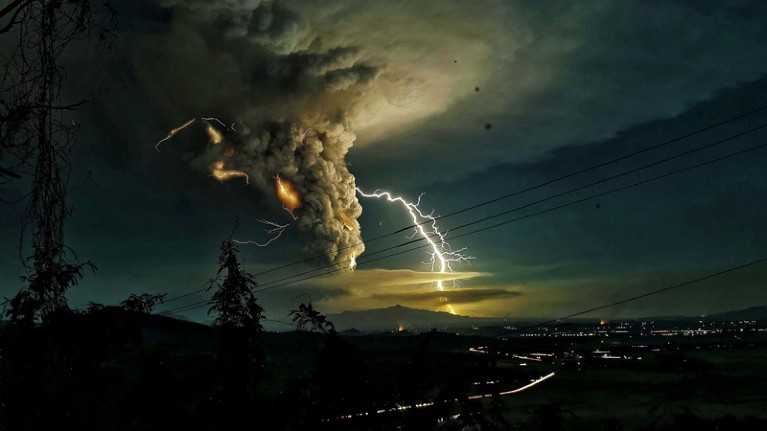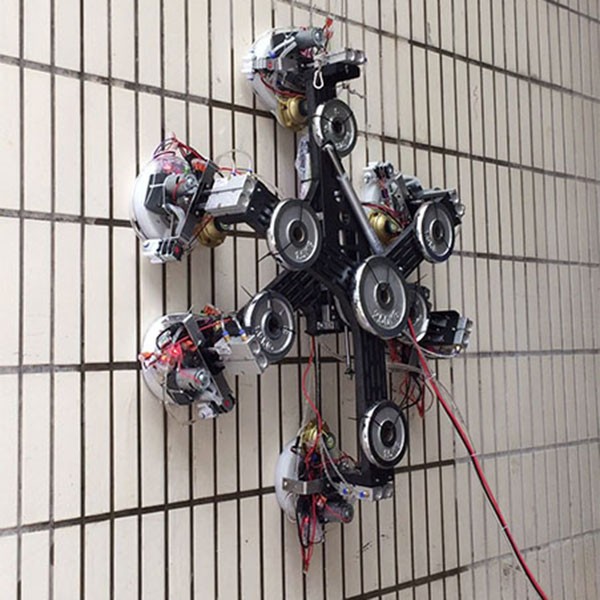Hello Nature readers, would you like to get this Briefing in your inbox free every day? Sign up here

Taal volcano spews ash and debris kilometres into the sky.Credit: Domcar C Lagto/PACIFIC P/SIPA/Shutterstock
Eruption fear in the Philippines
The Taal volcano in the Philippines has become less active since it began spewing steam and ash more than a week ago, but scientists are warning people that there is still a threat of a large-scale eruption. Some 2 million people live within 35 kilometres of the volcano. “This eruption may last months or more,” says geophysicist Jacques Zlotnicki.
Ozone killer contributes to Arctic warming
Gases that ripped the hole in the ozone layer over Antarctica might also explain why the Arctic is warming more than twice as fast as the rest of the globe. Climate simulations show that the mass emission of chlorofluorocarbons (CFCs) beginning in the 1950s could be responsible for up to half of the effects of climate change observed in the Arctic from 1955 to 2005. The good news: the 1987 Montreal Protocol nearly eliminated CFC production, and global concentrations of the gases are dropping.
Reference: Nature Climate Change paper
New virus spreading from Wuhan across Asia
A respiratory illness that appeared in the central Chinese city of Wuhan in December has spread to other cities in China and to South Korea, Thailand and Japan. With millions of people in China travelling to celebrate the Lunar New Year holiday this weekend, health researchers worry that infections will only increase.The illness probably originated in a Wuhan animal market, but human-to-human transmission is also occurring. The revelation yesterday that health-care workers have been infected, considered a litmus test for a pathogen’s ability to spread between people, suggests that the Wuhan virus is more contagious than previously thought.
Nature | 4 min read & Nature | 4 min read
China to ban plastic bags and straws
China will ban plastic bags in major cities by the end of the year and in all cities and towns by 2022. Restaurants will also be banned from offering single-use straws by the end of 2020. The country’s huge population produces more plastic waste than any other.
Features & opinion
Biology technologies to watch in 2020
Seven thought leaders in biology predict the tech developments that will have a big impact in the coming year. Among them, structural biologist Hongwei Wang plumps for transmission cryogenic electron microscopy (cryo-EM) for deciphering the structures of macromolecules. Biophysicist Sarah Woodson is keeping her eye on long-read RNA sequencing and live-cell imaging using light-up RNA strands called aptamers. And computational systems biologist Elhanan Borenstein is excited about computational methods to decode the microbiome.
Australia: show what a climate leader can do
The Australian bush fires should be a wake-up call for the country’s leaders, argues a Nature editorial. Adaptation is not enough: to protect its citizens and its country, the government of Prime Minister Scott Morrison must join wholeheartedly in the global effort to reduce greenhouse-gas emissions.
Bye-bye to the Big Bang
During an infinitesimal moment in time just after the Big Bang, the Universe expanded to more than a billion, billion times its original size through a process called cosmological inflation. Or did it? Huge cosmological experiments have failed to find the much-sought-after fingerprint of inflation in the cosmic background radiation, and some theorists feel that the theory has outlived its usefulness. To replace it, some propose a ‘Big Bounce’, with the Big Bang as the turning point in an ongoing cycle of contraction and expansion. Or even a mirror universe — where antimatter replaces matter and time flows backwards — that extends out in reverse from the event we call the Big Bang.
Image of the week

This hexapod wall-climbing robot is able to cling to rough surfaces without losing its vacuum-suction grip. The secret is a layer of water rotating at high speed. As the water spins, the inertial force generates a pressure gradient steep enough to maintain a high vacuum at the centre of the gripper, while the pressure at the boundary remains equal to the atmospheric pressure. Researchers have also built a “spider-man wall-climbing” version of the device. (Physics of Fluids) (Xin Li and Kaige Shi)
